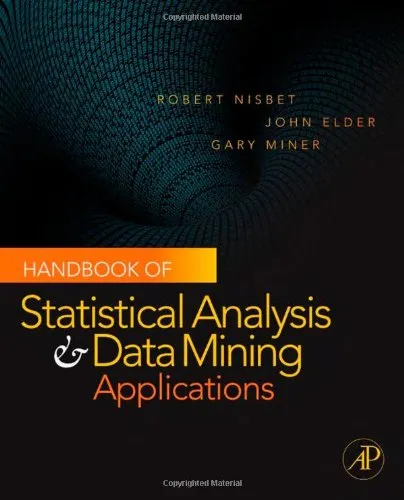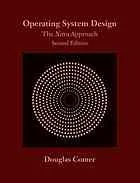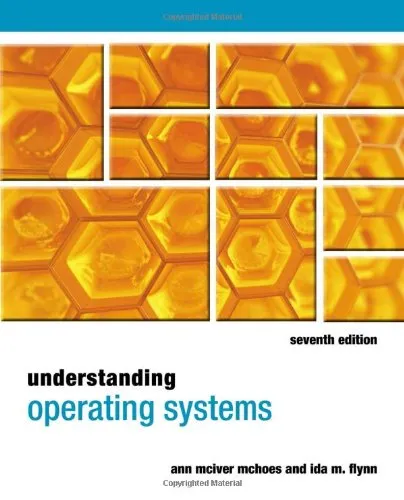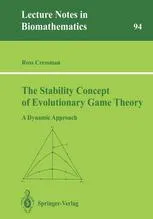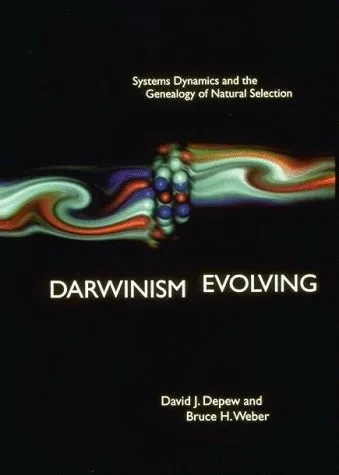Adaptive Dynamics: The Theoretical Analysis of Behavior
4.0
Reviews from our users

You Can Ask your questions from this book's AI after Login
Each download or ask from book AI costs 2 points. To earn more free points, please visit the Points Guide Page and complete some valuable actions.Related Refrences:
Introduction to Adaptive Dynamics: The Theoretical Analysis of Behavior
Welcome to Adaptive Dynamics: The Theoretical Analysis of Behavior, a thought-provoking exploration of the principles underlying how organisms, both human and non-human, adapt and respond to their environment. Written by J. E. R. Staddon, this book delves into the interplay between behavior, evolution, and the theoretical frameworks used to understand these dynamic systems. It combines scientific rigor with intuitive interpretations to build a foundational understanding of adaptive behavior.
Throughout this in-depth volume, I aim to clarify critical questions about behavior: How do living creatures adapt to changing environments? What mechanisms drive these adaptations? Fundamentally, the book examines behavior not as a static property but as a dynamic and ever-evolving process shaped by ecological demands, individual learning, and evolutionary pressures. Whether you're a psychologist, biologist, or philosopher of science—or simply someone curious about behavior—the theory-rich content in this text will enrich your understanding of life's adaptive processes.
Detailed Summary of the Book
Each chapter of Adaptive Dynamics sheds light on the interplay between theory, experimentation, and evolutionary explanations of behavior while fostering a critical approach to traditional concepts.
The book is divided into thematic sections. It begins with foundational principles, covering the historical context of behavioral study and introducing readers to the theoretical frameworks of adaptive dynamics. Early chapters lay the groundwork by addressing key theories—ranging from operant conditioning to more complex models of feedback control found in systems theory.
Building on these foundations, subsequent sections explore real-world adaptations in animals and humans alike. From the precise mechanisms behind learning models to the computational analysis of behavior, the book navigates through topics such as temporal behavior (timing and rhythm), feeding strategies, decision-making processes, and the role of reinforcement in shaping adaptive actions.
One of the core themes of the book is the recognition of optimality and how behaviors often appear to be the "best solution" for survival. However, rather than treating optimality as static, I dive into the nuances of how behaviors emerge, adapt, and stabilize in light of environmental variability and constraints.
The book culminates by addressing the broader implications of these behavioral frameworks. It ventures into philosophical and scientific debates about causality, prediction, and explanation while emphasizing the utility of theoretical analysis in scientific discovery. Each chapter concludes with reflections that link practical examples back to overarching theoretical insights.
Key Takeaways
What can you expect to gain by delving into Adaptive Dynamics? Here are some major takeaways:
- A deeper understanding of the theoretical underpinnings of behavior and adaptation.
- An appreciation for the interplay between evolutionary pressures and individual learning mechanisms.
- Practical explanations of how theoretical models are applied to real-world adaptive behaviors across species.
- Critical tools for analyzing the structure and variability of behavior using empirical and mathematical approaches.
- Reflections on the philosophical aspects of behavioral science, including causality and predictability.
Famous Quotes from the Book
Here are some memorable quotes from the book that encapsulate its essence:
"Behavior is the product of evolution, learning, and context—a dynamic interplay that defies simplistic explanation."
"Adaptation is not about perfection; it is about resilience—the ability to flex with change and endure against odds."
"A theoretical model is useful not because it precisely predicts behavior but because it offers insight into the principles that guide it."
Why This Book Matters
In a world increasingly fascinated by behavioral science, Adaptive Dynamics presents a valuable bridge between practical observation and advanced theoretical understanding.
For students and professionals in psychology, neuroscience, and evolutionary biology, this book offers a framework for making sense of complex behaviors. It addresses the limitations of traditional approaches and introduces alternative perspectives that explain phenomena such as learning, timing, decision-making, and reinforcement with clarity and precision.
Moreover, for those with a philosophical interest in science, the book challenges preconceived notions about causality and realism, pushing readers to explore the foundational assumptions behind behavioral theories. With its rigorous yet accessible treatment of intricate topics, Adaptive Dynamics has the potential to redefine how we think about the study of behavior.
Whether you're a seasoned researcher or simply someone curious about human and animal behavior, Adaptive Dynamics offers a wealth of ideas and insights that will resonate long after the final chapter concludes.
Free Direct Download
You Can Download this book after Login
Accessing books through legal platforms and public libraries not only supports the rights of authors and publishers but also contributes to the sustainability of reading culture. Before downloading, please take a moment to consider these options.
Find this book on other platforms:
WorldCat helps you find books in libraries worldwide.
See ratings, reviews, and discussions on Goodreads.
Find and buy rare or used books on AbeBooks.
1402
بازدید4.0
امتیاز0
نظر98%
رضایتReviews:
4.0
Based on 0 users review
Questions & Answers
Ask questions about this book or help others by answering
No questions yet. Be the first to ask!
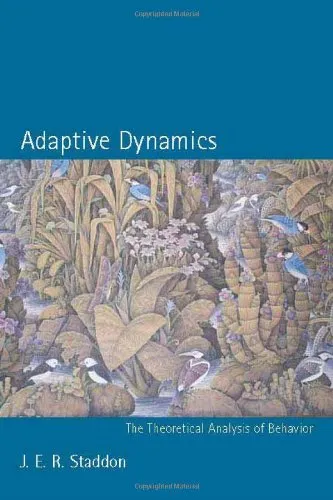
![Engineering a Compiler, Second Edition [2nd Ed] (Instructor's Edu Resource 1 of 2, Solution Manual) (Solutions)](https://s3.refhub.ir/images/thumb/Engineering_a_Compiler__Second_Edition__2nd_E_2258.webp)
